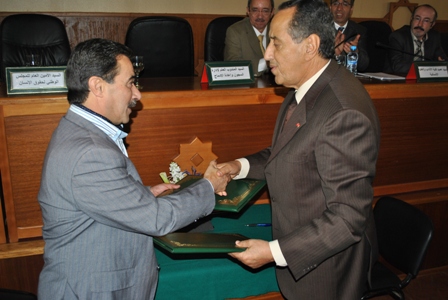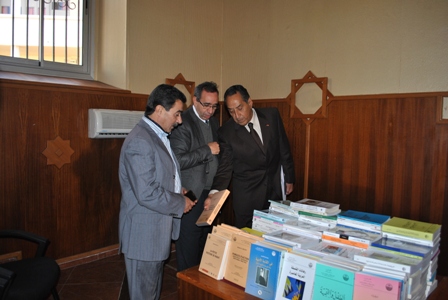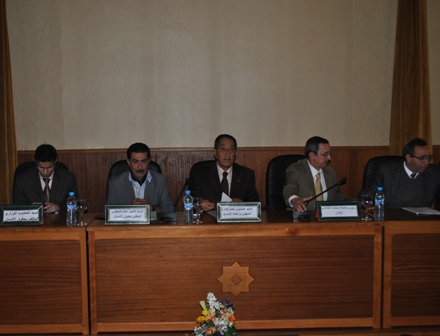ACCESS TO BOOKS AND EDUCATION CAN PLAY MAJOR ROLE IN REINTEGRATING PRISONERS
The (Moroccan) National Human Rights Council (CNDH) and the Faculty of Arts & Humanities Agdal Rabat signed, on Tuesday, March 14, 2013, a partnership agreement to improve access of prisoners to books and education.By virtue of this agreement, the Council hands the Faculty’s publications (more than five hundred copies of more than 300 publications) over to the General Delegation of Prison Administration and Reintegration, which will distribute them to the different prison institutions according to the needs and its reintegration programs.
This initiative is in line with the implementation of the recommendations of the report of the Council on prison conditions. It aimed to improve prisoners’ access to books and education and thus contribute to their reintegration in society, Mr. Mohammed Essabbar, CNDH Secretary General, said. He stressed the importance of these kinds of initiatives for prisoners and society at large.
Mr. Essabbar indicated that one of the missions of the prison administration, if not the most important of them all, is the reintegration of prisoners. Reading and access to books and education can play a major role in this regard, he concluded.

Mr. Hafid Benhachem, General Delegate of Prison Administration and Reintegration, highlighted the importance of the initiative, which may strengthen partnership of the Council, the Faculty and the General Delegation. An essential outlet for prisoners, he said, adding that it helps consolidate the right of prisoners to education, training and care, enshrined in the constitution of 2011.
Mr. Benhachem indicated that more than 13500 prisoners are enrolled in the 2012/2013 education and training programs that the General Delegation implements, in partnership with several stakeholders, mainly Mohammed VI Foundation for Reintegration.
This agreement may contribute to improving prison situation and the treatment of prisoners Mr. Mahjoub El Hiba, Ministerial Delegate for Human Rights, said. Encouraging reading is an important means for reintegration, cultivating good behavior and alleviating the sufferings of deprivation of liberty, he concluded.

Waïl Benjelloune, President of Mohammed V University-Agdal, shed light on the importance of the initiative. He stated that universities have already recognized the right of citizens, and prisoners, to education. He wished this kind of action and the fact that prisoners are accepted to enroll in universities would contribute to helping prisoners, after the ordeal of prison, to be good and active citizens who contribute to the development and welfare of their society.
For Mr. Abderrahim Benhada, Dean of the Faculty of Arts and Humanities, this initiative strengthened the fruitful partnership and cooperation between the National Human Rights Council and the Faculty.
CNDH had published on October 2012 a report entitled “Crisis in Prisons: A Shared Responsibility - 100 recommendations to protect the rights of prisoners.” The recommendations of the report are addressed to the different stakeholders concerned. Some of them are related to education and vocational training; mainly strengthening cooperation of stakeholders concerned, placing no restrictions whatsoever on the right to education and training and sensitizing prisoners to the importance of education and vocational training.























